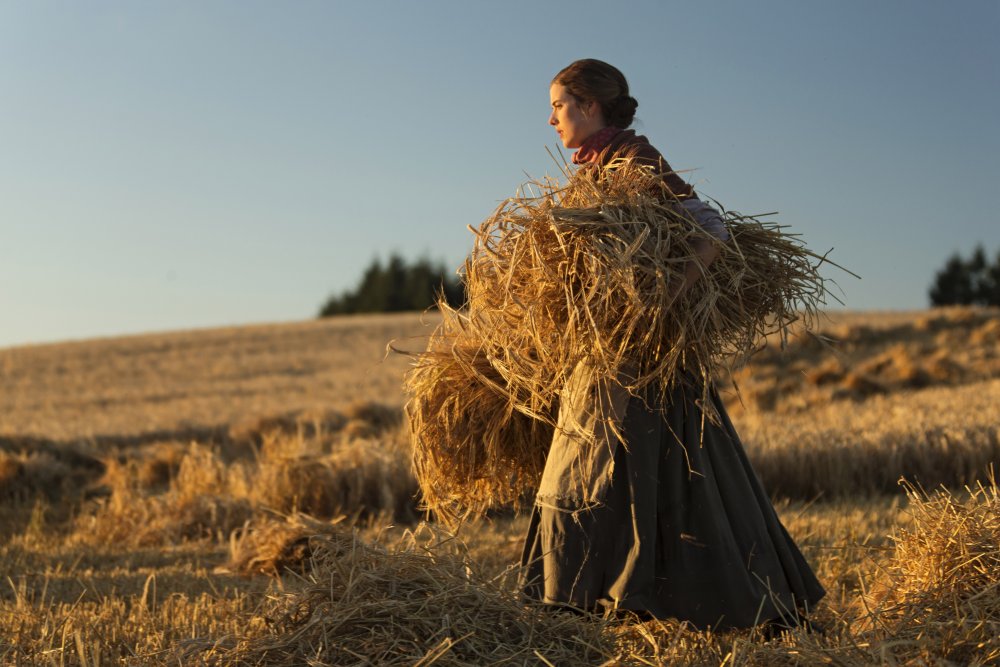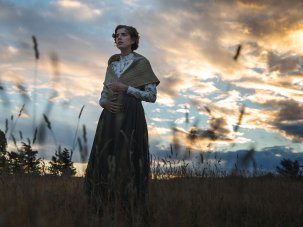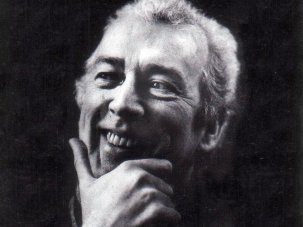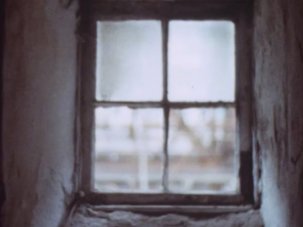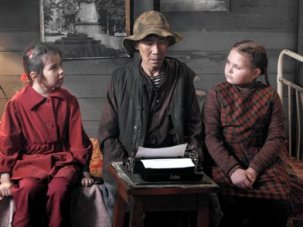Spoiler alert: this review reveals a plot twist
Repetition, going over the same ground, can be a route to originality for a great artist, an auteur, whether it’s Monet painting haystacks or Hitchcock putting blondes in danger; but it can also be a sign of creative fatigue. Terence Davies is certainly a great artist, but the signals sent by the repetitions in Sunset Song are ambiguous.
United Kingdom/Luxembourg 2015
Certificate 15 135m 42s
Director Terence Davies
Cast
Chris Guthrie Agyness Deyn
John Guthrie Peter Mullan
Ewan Tavendale Kevin Guthrie
Jena Guthrie Daniela Nardini
Will Guthrie Jack Greenlees
Dolby Digital
In Colour
[2.35:1]
UK release date 4 December 2015
Distributor Metrodome Distribution Ltd
sunset-song-film.com
► Trailer
Lewis Grassic Gibbon’s novel of 1932 is a key work of the Scottish renaissance of the first half of the 20th century. It’s rooted in the landscape and rural culture of the Mearns, south of Aberdeen, where Gibbon was brought up, and written partly in Doric, the local dialect (though it’s pleasing to discover that it was written in Welwyn Garden City).
The central figure is Chris Guthrie, daughter of a crofting family. In the film, she is first seen at school, where a pompous inspector is despairing at the girls’ French pronunciation: Chris is called upon by her teacher to show how it’s done. Later, we see her laughing and larking about with a friend as they walk home through the woods, speaking of their ambitions. It’s clear that she is intelligent, sensitive and high-spirited, with a bright future ahead.
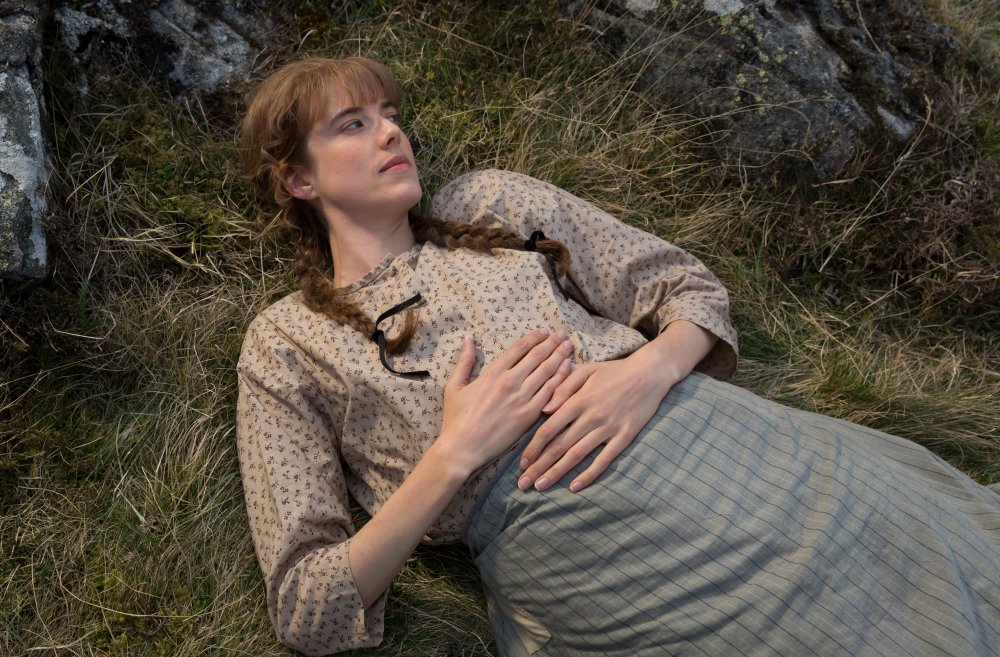
But at home things are not easy: her father is a stern Presbyterian with a temper – when Chris’s older brother Will nicknames a horse ‘Jehovah’, their father is enraged by the blasphemy and beats him. At night, in their shared bedroom, Will talks to Chris of how much he hates him. At night, too, they hear their father’s insistence on his conjugal rights and their mother’s protests – they have four children already.
Though it differs in detail – of landscape, period, language, accent, religion, music – this is in many ways the same world that Davies explored in Distant Voices, Still Lives (1988), his best-known and, I’d guess, best-loved film: the violent patriarch, the downtrodden wife, the sensitive, defiant son, the charismatic daughter. These figures are the foundations of Davies’s art, and to complain about them would be as daft as complaining that Jane Austen seemed awfully preoccupied with the lot of unmarried young women.
All the same, it is hard not to feel a tug of disappointment at the way the relationships are worked out here. Pete Postlethwaite’s father in Distant Voices… was a terrifying sadist but he offered a sense of the damage underlying the violence, the knowledge that he too was a victim, even if it was never clear of what. So there was the long moment of trembling before an explosion at the dinner table, and the memorable scene in which, during an air raid, he slapped his daughter and then clutched her to him: his love for his family and his own terror, his own wars, were visible.
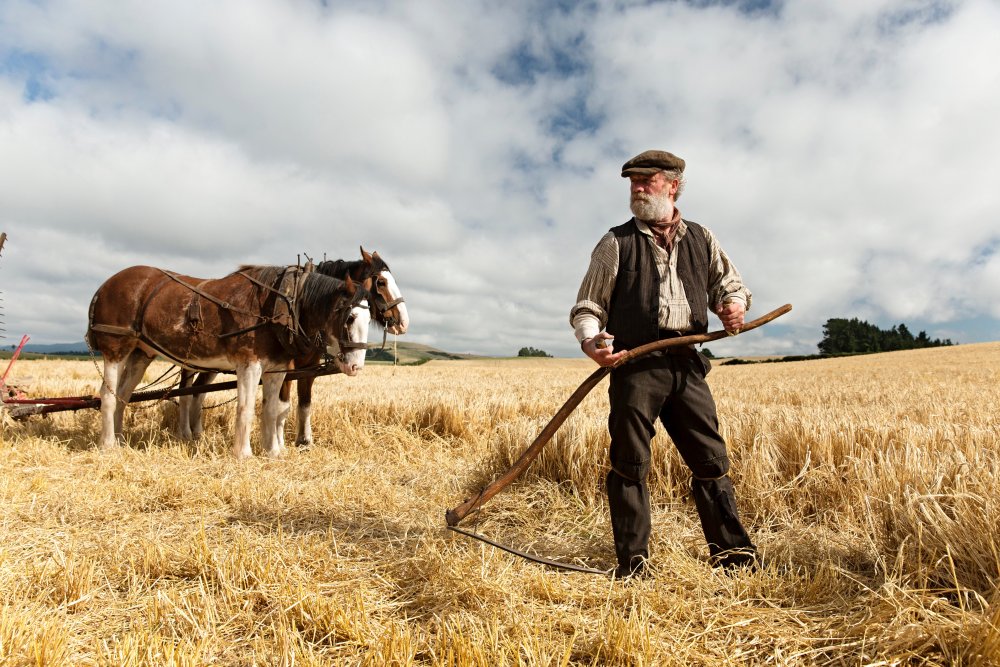
John Guthrie, in Sunset Song, is a less inflected creature; he has one strikingly tender moment after his wife’s death – as her corpse lies on their bed, laid out for burial, he leans over and rearranges her plait on the pillow. But otherwise, hard but fair and a bit screwed up about sex is as deep as this portrayal goes.
For the most part, Davies and his editor David Charap move quite briskly from shot to shot, so that it is striking when they linger over anything; one of the first pauses comes when Will is beaten for borrowing his father’s gun without permission – a reminder of just how much writers of Gibbon’s generation were in thrall to Freud. The undertone of sado-homoeroticism is odd.
The drama of Chris’s life with her father takes us through the first third or so of the film. Her mother (Daniela Nardini, warm and affecting in what little screen time she is given) is weighed down by his anger, and his demands for sex – the consequences made clear when the doctor in attendance at the birth of her twins eats his boiled egg afterwards with a shaking hand. Finding that she is pregnant again, she poisons herself and her infant twins; Chris’s hopes of an education have to be put aside. Will leaves, bound for Canada, or anywhere else he can escape their father. Then her father has a stroke, and becomes in his helplessness more monstrous than before.
But throughout all this, there is a strain of rapturous lyricism not too far in tone from Distant Voices… and The Long Day Closes (1992), though here it is inspired by rural landscapes. (Not all of them are in Scotland: making the film was for Davies a Wellesian odyssey that took him to New Zealand and Luxembourg in search of the right conditions, natural and fiscal.) DP Michael McDonough creates some gorgeous pictures of crops and clouds; but much of the work is done by Agyness Deyn, as Chris, through whose eyes the story unfolds. At several points the camera lingers as she contemplates herself in the mirror, letting us feel the weight of her introspection, her uncertainty about the future.
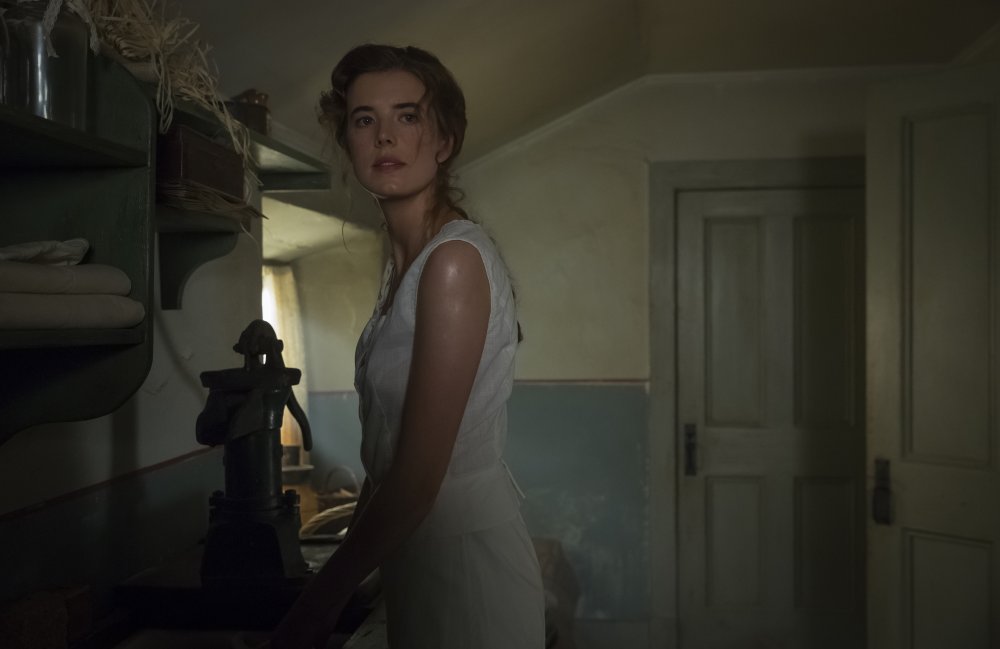
Deyn, an ex-model, has the height and slenderness for Gibbon’s boyishly attractive heroine, though in the early scenes she is visibly too old to play a schoolgirl, and from time to time the perfection of her lipstick is a faint distraction. Still, Chris is meant to be a superior being; at the heart of the story is her torn sense that her intellect destines her for better things, while her body and soul are tied to the land and the farm; Deyn gets the ambivalence well. At times she is given chunks of the novel to read in voiceover: the device is not subtle, but Deyn carries it off (to my ears her accent is very creditable, though the judgement should perhaps be left to natives of Aberdeenshire).
After the death of Chris’s father, the story enters a new phase: Chris has the farm, she has her cleverness and strength of character. She hires an older woman to come and live with her, to satisfy local opinion and to free herself of the housework. Deyn radiates a warm private pleasure as she announces these measures.
Her courtship with Ewan Tavendale, a young local farmer, offers a rare sense of what romance was like in an isolated community a century ago – the lack of contraception, the shortage of other romantic possibilities, the sense of every action being observed by the whole community – but the film makes it clear that sex could be no less romantic and ecstatic for all that. The tenderness of Chris and Ewan’s relationship, the joy of youth and sex, and then of childbirth, feel touching and authentic. This is Davies at his best, rapturously caught up in the glamour of ordinary lives.
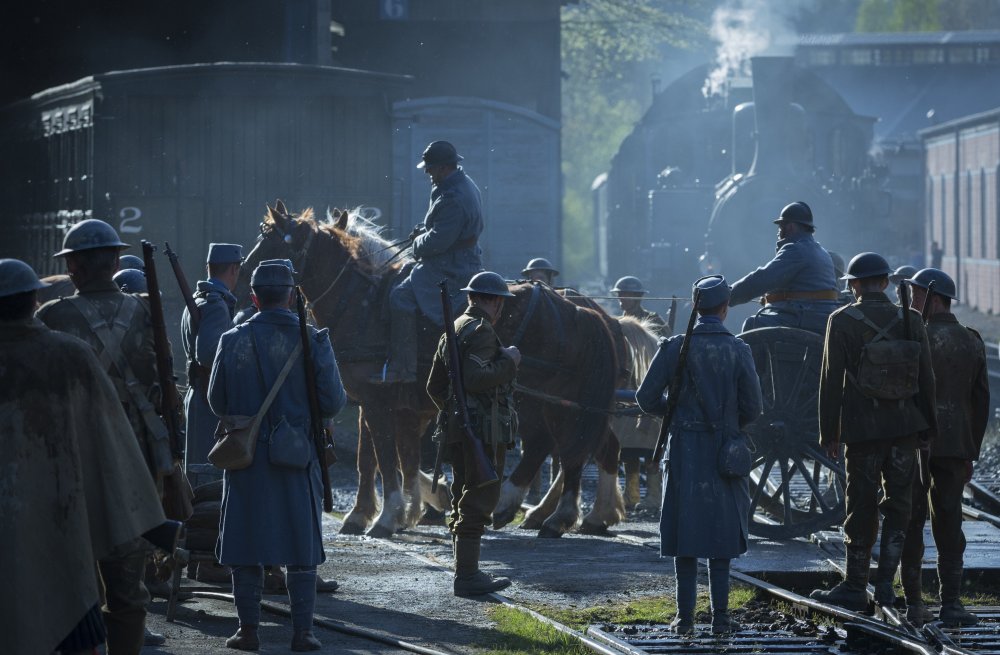
But in the last 40 minutes or so the film sags badly. The outbreak of war is announced – the first really definite clue to precisely when all this is happening – and suddenly the script goes slack. “Have you seen the casualty list?” someone demands: “Fifty thousand men dead for a few yards of Belgian mud.”
Ewan enlists; returning from his training camp, he is angry, coarse and violent. The problem is not that his rage is unrealistic (though Kevin Guthrie shows less conviction than in the earlier romance) but that it is dull.
When, inevitably, he dies, Chris’s rage and denial also feel detached, secondhand. Having coped with the wide range of emotional demands so far, Deyn now seems stranded, unable to find any variety in grief. A prolonged flashback to Ewan’s final hours at the front only accentuates the sense of rush and clumsiness – you remember how deftly in Distant Voices… Davies wove together past and present, how alive memory seemed; but this is perfunctory, a way of sewing things up.
At its best, Sunset Song, for all its flaws, confirms that Davies is an artist; but somewhere along the way – somewhere in Luxembourg, perhaps – exhaustion set in.
In the January 2016 issue of Sight & Sound
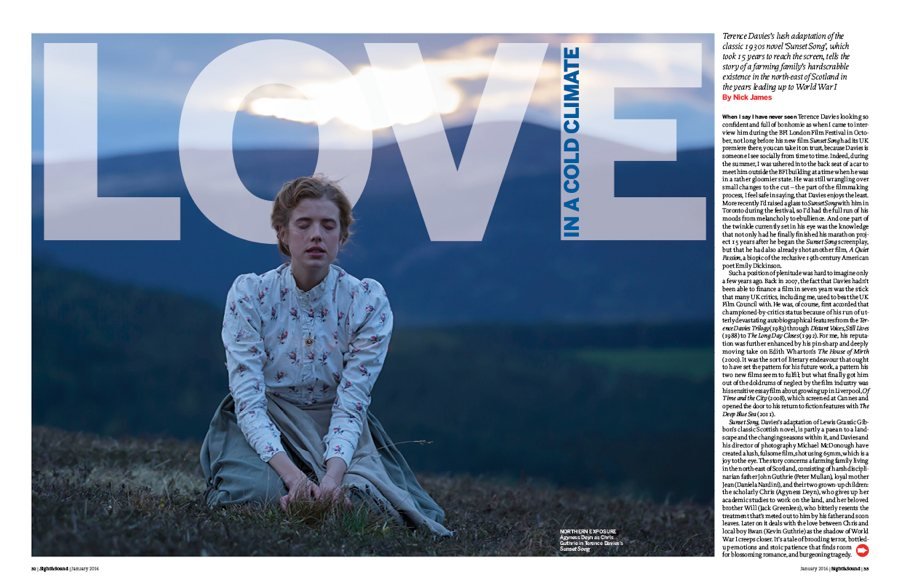
Love in a cold climate
Terence Davies’s lush adaptation of the classic 1930s novel Sunset Song, which took 15 years to reach the screen, tells the story of a farming family’s hardscrabble existence in the north-east of Scotland in the years leading up to World War I. By Nick James.
-
Sight & Sound: the January 2016 issue

The best films of 2015 as voted for by 168 critics, Alejandro González Iñarritu on The Revenant and Nora Ephron, queen of the romcom.
-
The Digital Edition and Archive quick link
Log in here to your digital edition and archive subscription, take a look at the packages on offer and buy a subscription.




